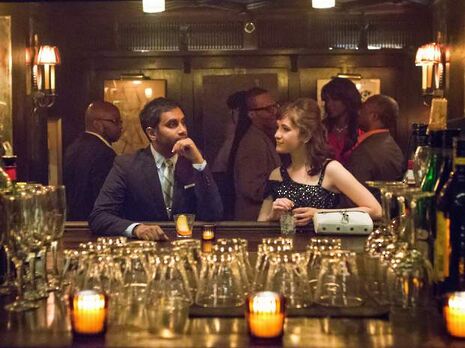TV Round-Up: ‘Master of None’ Season 2
Following an enjoyable first series, Ashley Woodvine takes a fond look at the progressive storytelling of its second, a love letter to Italy

Master of None is fundamentally a show about love. The first season, which followed Dev Shah (Aziz Ansari, writer and creator of the show) trying to navigate romantic, platonic, and familial love, had already made that clear.
In the second season, however, the show opens its heart full-swing. It’s a love letter – to people, to relationships, to food, to New York, to Italy, and to all the artistic influences it proudly wears on its sleeve. The first episode picks up in Italy, three months after Dev moved there at the end of the first season. It’s a funny and sweet tribute to Italian cinema, coupled with a reintroduction to our lead, lonely and desperately searching for something meaningful.
From there, the ambition to tell this story about the pursuit of love, in a bold and interesting way richly stitched with homage to every one of the show’s inspirations, never falters.
“Master of None is not interested in merely displaying these storylines to win progressive kudos”
The general move away from the conventional, unapologetic TV romcom is easy to note. 2004 saw the end of Friends and Sex and the City, two shows which pushed the classic ‘will-they, won’t-they’ stories about the trials and tribulations of dating to their limits. After that, TV romcoms either had to have a novel initial premise (How I Met Your Mother), embed themselves into a larger story revolving around an ensemble (The Office, Parks and Recreation) or descend into a perspective that was a little edgier, more cynical (You’re the Worst, Love).
Master of None is none of these; it’s a romcom, first and foremost, and its romanticism is free of both pretence and irony. In fact, it trades on earnestness. An early episode follows Dev on a cavalcade of first dates, with the interwoven timelines driving home how difficult and frustrating it is for him to find a genuine connection. The visual language of the show screams lust and longing, all red neon lights and glittering city landscapes.
It is also deeply intimate – one episode features a long one-take shot of Dev in the back of a cab, his face constantly responding in a physical, pained way as he registers on every level that he has feelings for somebody he shouldn’t. The romantic arc of this season is as honest as it is swept up in elements of the idealist fantasy of love that all good romcoms exhibit, making for a refreshing take on something strikingly traditional.
The series is also exceptional in regards to the representation of marginalised and diverse stories, for practising what other shows only preach. One episode focuses on the complicated terrain of Dev’s Muslim upbringing and secular beliefs, while another explores the intersection between being black, being gay, and being a woman.
The most conceptually ambitious episode follows three overlapping storylines, which centre nearly exclusively on new characters with lives that are typically unrepresented in television. Impressively, these stories never feel forced or false. They are written with nuance and sensitivity, and are the natural consequence of focusing on characters who experience these conflicts in their day-to-day lives. Master of None is not interested in merely displaying these storylines to win progressive kudos – it is a comedy before all else. Instead, it is interested in people and their realities – people like those Ansari really spends his time with, and therefore whose stories he can tell in an authentic way.
The conviction and confidence the show amounts to a near-perfect season of television. It is hard to come away from it filled with anything less than gushing joy. Master of None allows you to feel hopeful about the world and the people in it, and lets you indulge in all that is magical about romantic comedy
 News / Cambridge academics sign open letter criticising research funding changes22 February 2026
News / Cambridge academics sign open letter criticising research funding changes22 February 2026 News / Supporters protest potential vet school closure22 February 2026
News / Supporters protest potential vet school closure22 February 2026 News / University Council rescinds University Centre membership20 February 2026
News / University Council rescinds University Centre membership20 February 2026 News / Hundreds of Cambridge academics demand vote on fate of vet course20 February 2026
News / Hundreds of Cambridge academics demand vote on fate of vet course20 February 2026 Comment / A tongue-in-cheek petition for gowned exams at Cambridge 21 February 2026
Comment / A tongue-in-cheek petition for gowned exams at Cambridge 21 February 2026








